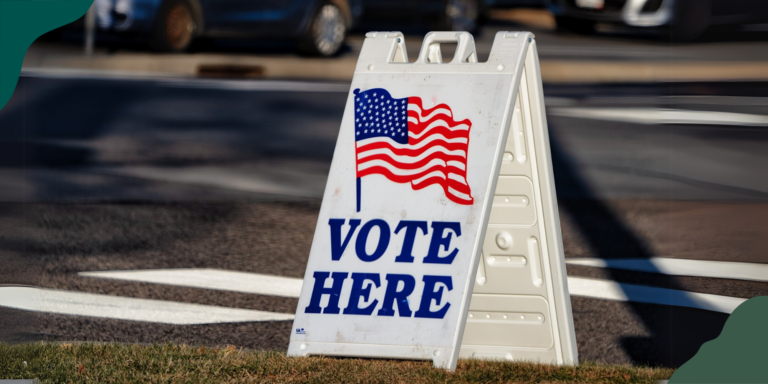What is the Kids Eat Local Act? And Other Food Policy Updates
In this month’s policy update, we dive into the Kids Eat Local Act, changes to school nutrition standards, food and nutrition funding, and more.
In this month’s policy update, we dive into the Kids Eat Local Act, changes to school nutrition standards, food and nutrition funding, and more.

On June 12, a bipartisan group of members of Congress introduced the “Kids Eat Local Act,” a bill that would make it easier for schools to source healthy, local products for meals.
Under current law, schools are not allowed to explicitly specify “local” when ordering products. Currently, schools can use a geographic preference option to support local purchases, which allows them to award extra ranking points to vendors with local products. Still, many have found this option to be cumbersome and confusing. By allowing schools to specifically prioritize local for procurement, the Kids Eat Local Act will make it easier and more straightforward for schools to source locally.
Sourcing locally is all-around beneficial—kids eat more healthy food, farmers and other producers gain new markets, and more dollars are invested in local communities.
With our partners at the National Sustainable Agriculture Coalition and the National Farm to School Network, we will be calling on lawmakers to include the Kids Eat Local Act in their final child nutrition bill as Congress begins the reauthorization process.
Thanks to Senators Sherrod Brown and Susan Collins and Reps. Chellie Pingree, Josh Harder, and Jeff Fortenberry for their leadership in introducing this bill!
Congress has been working on its annual funding bills for fiscal year 2020, and two areas FoodCorps tracks closely could be impacted.
National service funding: As we wrote earlier this year, the Trump administration again proposed to completely eliminate all support for national service, such as AmeriCorps. Fortunately, in May, the House Appropriations subcommittee in charge of national service funding wisely rejected the president’s proposal. In fact, the committee’s bill would fund the Corporation for National and Community Service at $1.14 billion, an increase of $55 million over last year’s budget.
FoodCorps is proud to have joined our partners in the national service community to advocate for this strong level of support. A special thanks to the subcommittee chair, Rep. Rosa DeLauro, for her leadership on this issue.
Food/nutrition funding: The House Agriculture Appropriations subcommittee also released its FY2020 funding bill and it too rejects the proposed draconian cuts to nutrition assistance programs. Instead, the House bill would provide the required levels of funding for child nutrition programs, and also would invest $35 million for much-needed school kitchen equipment grants and $10 million for school breakfast expansion grants. Finally, of particular importance to FoodCorps, the bill doubles funding for the Food and Agriculture Service Learning Program with an investment of $2 million for FY2020.
On both issues, the Senate has yet to act on these appropriations bills. We will keep you posted as action proceeds.
Last week, the House held an oversight hearing on the USDA’s school nutrition rollbacks. Many lawmakers spoke about the USDA’s actions to weaken science-based nutrition standards, as well as a proposal to reduce the number of schools that are allowed to offer free meals for all students.
A comment by Rep. Jahana Hayes sums up what’s at stake: “I can tell you what school personnel don’t like, having been a teacher for 15 years: hungry children. Hungry children don’t learn. This isn’t this idea of the regulation, the paperwork, or what kids choose or like to eat. They like to eat. They like to be fed.”
The hearing was an opportunity for lawmakers to learn more about the administration’s rationale for these changes. Learn more about what was discussed at the hearing and why it matters.

Our 2024 Child Nutrition Policy Year in Review

9 Thoughtful Holiday Gifts Made by FoodCorps Alumni

The Policy Brief, Fall 2024: After the Election